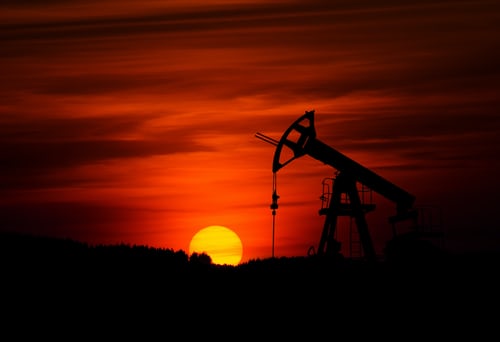The oil market is an incredibly unique and volatile arena — viciously swinging like a pendulum between stability and failure.
Everything affects the way in which the oil and gas industry operates, including global economic performance, the strength of the US dollar, and political relations.
Fortune within the industry has, for generations, transitioned between various different oil drilling nations and regions. Up until the late 1900s those at the helm of these fortunes cemented their regular position at the forefront of the world’s rich list.
Tycoons, as they are otherwise known, are dotted across the globe. The powerful figures who exist within the business in 2021, however, are significantly different to those who would be considered the founding fathers of drilling. That said, how would the personal wealth of the barons of yesteryear line up against the mega rich of the 21st century?
In this article, Motorparks take a look at the oil industry in its infancy, charting the rise of the men who quite literally dug it up from the ground. We’ll compare them against those who currently sit within Forbes’ Rich List thanks to their relation to drilling.
The traditional oil tycoon
The earliest known oil wells to be used date back as far as 347AD in China. However, the process as we know it today didn’t find its way into use for another 1,500 years, being innovated by Scottish chemist James Young.
Despite the fact the late 19th and early 20th centuries saw an unprecedented number of individuals record massive earnings thanks to the opportunities presented by the oil industry, we draw upon two who banked major pay checks over the course of their working career.
John D Rockefeller
Starting with this American businessman is certainly no bad place to begin. Rockefeller, whose name still rings loudly across the US today, is considered to be the richest American of all time.
In a list estimating the richest person to have ever lived calculated by American Lending Institution Title Max, it is suggested that Rockefeller, in today’s money, would have a personal wealth of more than $400 billion.
The founder of Standard Oil Company invested in a Cleveland Oil Refinery in the 1860s. Ten years on and he controlled an incredible 90 per cent of US oil, while he later accounted for two per cent of the nation’s GDP. His wealth allowed him to donate more than a half a billion dollars to charity over the course of his life, build the University of Chicago, and retire 40 years before his death.
John Paul Getty
Founder of Getty Oil Company, John Paul Getty alongside is almost equally well remembered for refusing to pay his grandson’s ransom fee as he is for his shrewd business credentials — which, in fairness, do come hand in hand.
In 1957, Getty was named as the richest living American and at the time of his death he boasted a personal wealth of $6 billion. In line with modern inflation, this would sit handsomely at a figure of $21 billion.
Getty’s grandson, John Paul Getty III, was kidnapped at the age of 16 by the Italian Mafia who demanded payment to the tune of $17 million. Having refused to hand over any cash until the kidnappers reduced their sum to $2.2 million, the oil tycoon later noted that he had 13 other grandchildren and if he was to pay for one he’d be paying for them all. He also expressed concerns that his grandson had actually plotted the kidnap to get money from him. Frugal, perhaps? Business-minded, most certainly!
Modern day oil tycoons
As of 2020, only 80 of the 2,095 people who enter on Forbes’ Rich List derived from the energy sector, four less than 2019. Collectively, the group of individuals are $41.2 billion poorer than they were 12 months previously.
How does their current wealth compare to that of the oil tycoons who led the way in the past?
It is worth noting that oil does still contribute the most in terms of the energy’s richest, with six of the top ten generating from a background related to the fossil fuel.
Mukesh Ambani
Mumbai resident and Managing Director of Reliance Ltd Mukesh Ambani is the 21st richest individual in the world, with a net worth of $36.8 billion. As of April 2020, the 64-year-old is the wealthiest man in Asia.
Ambani’s personal worth is more than double that of the nearest oil tycoon to which he competes with on the rich list — hardly a surprising statistic when he is adding more than $4.5 million to his nest egg every day.
Vagit Alekperov
Founder of Lukoil, Russia’s largest independent oil producer, Alekperov came from humble beginnings, working on the rigs in the Caspian Sea.
Lukoil suffered a major blow in 2019 as their shares dropped by more than 30 per cent, costing the Azerbaijanian-Russian businessman more than $5 billion. Despite significant losses, Alekperov still weighs in with a net worth of $15.2 billion, suggesting that the oil business has been rather kind to him.
Interestingly, despite major earnings as tycoons, neither Akperov nor Ambani’s total worth is anywhere near what we would expect Rockefeller’s to be today. In fact, Rockefeller would be nearly three times better off than the world’s richest man at present, Elon Musk.









